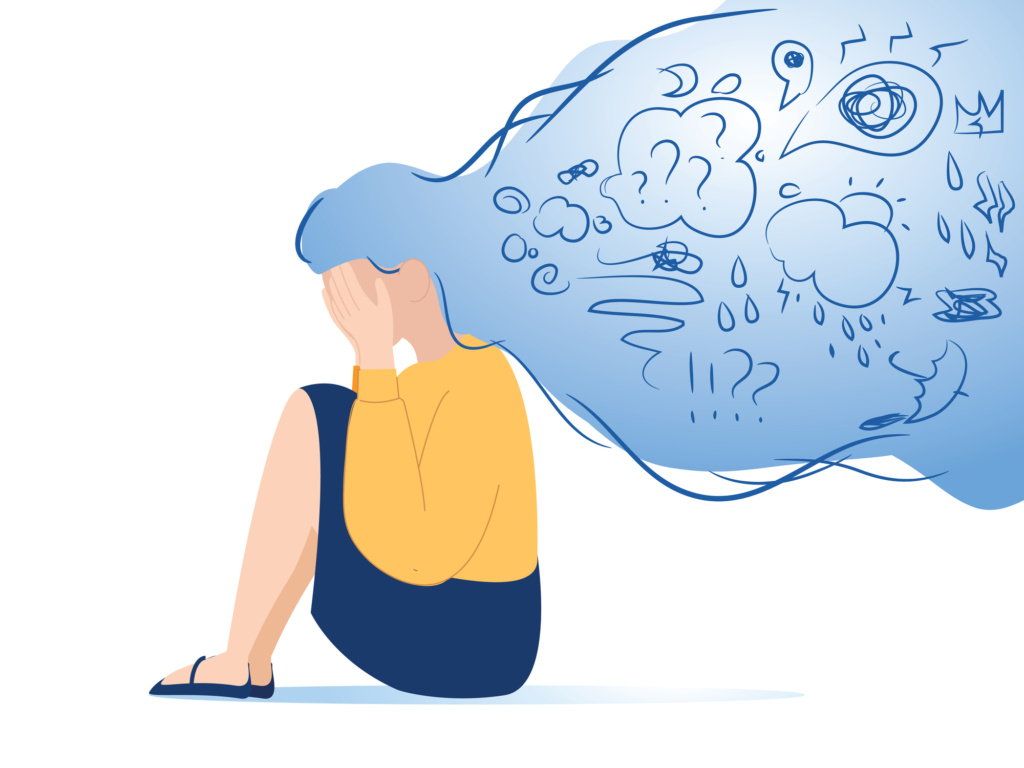Feeling anxious? You’re not alone – and help is available
The problem could be an anxiety disorder
Article By | Erik J. Martin, CTW Features
You’re driving along contentedly in your car. It’s a sunny, carefree day, and there’s little on your mind except finding a good song on the radio. Before long, you’re traveling across a bridge and are suddenly stricken with overwhelming panic. Where did this feeling come from, and how can you prevent it from happening again?
“For nearly a decade, driving on the freeway brought on extreme anxiety, and riding over bridges sometimes caused panic attacks,” says 58-year-old Columbus, Ohio resident Nita Sweeney. “I learned to keep one hand on the wheel and the other clutching a paper bag to my mouth. But I knew I needed to do more – I didn’t want to get to a place where I couldn’t drive at all.”
Sweeney learned that she was suffering from generalized anxiety disorder (GAD), panic attacks and agoraphobia. To treat the symptoms, she’s taken different medications, engaged in talk therapy and neurofeedback (brain training), and practiced mindfulness meditation.
She’s far from alone. Anxiety disorders are the most common mental illness in America, afflicting 40 million adults in the United States – more than 19 percent of the population annually, per the National Alliance on Mental Illness. The good news is that anxiety disorders respond well to treatment, yet the Anxiety and Depression Association of America report that less than 37 percent of sufferers receive treatment.
“In general, the term ‘anxiety’ is used to describe an emotional experience characterized by feelings of apprehension and worry that are accompanied by associated thoughts, physiological changes and avoidance behaviors,” explains Danielle Maack, Ph.D., a licensed clinical psychologist and associate professor of psychology at the University of Mississippi in Oxford, Mississippi.
The most common types of anxiety disorders include GAD, social anxiety disorder, panic disorder and phobias.
“GAD is anxiety generated by different life events that are accompanied by physical symptoms like fatigue, irritability, muscle stress, poor concentration and restlessness. This anxiety may center around family, work, finances, relationships, and everyday tasks and responsibilities,” notes Joelle Shipp, licensed professional counselor with MindPath Care Centers, an outpatient mental and behavioral health services provider in North Carolina. “Social anxiety disorder is fear or worry that occurs in social settings. These people may fear that they will embarrass themselves or be judged by others, and the distress of these activities may be so great that these people start to avoid social settings altogether.”
Panic disorder, meanwhile, “is the continued experience of feeling anxious, frightened or uncomfortable – leading to a rush of physiological sensations, such as rapid heartbeat, dizziness, hot flashes and depersonalization, that peak within about 10 minutes,” adds Maack. “These attacks seemingly come out of the blue and occur in situations where most people would not feel that way.”
And for a person with a phobia, particular events, objects, or places can trigger powerful and illogical fear, as Sweeney experienced.
Carole Lieberman, MD, a Beverly Hills, California-based psychiatrist, says any anxiety disorder can be challenging and debilitating because it may significantly interfere with the quality of life and everyday enjoyment.
“Some people are more vulnerable to suffering from anxiety than others. Those who grew up in a home where their parents were anxious, or they witnessed domestic abuse or alcoholism are more susceptible,” says Lieberman. “Also, people who experience traumatic events – such as a car accident or fire – are more vulnerable.”
If you experience anxiety that prevents you from living your best life, don’t despair.
“Anxiety disorders are curable or quite manageable, depending on the specific disorder and assuming adequate treatment,” says Jared Heathman, MD, a psychiatrist in Houston, who recommends talking first with your family physician about your symptoms. “Your physician may advise medication, lab work, lifestyle changes, different medical assessments, counseling or any combination of these treatment modalities.”
Also, engage in daily exercise, eat healthier foods, and get more sleep, advises Lieberman.
“It’s important to acknowledge the presence of anxious thoughts and feelings and determine that you want to make a change. Taking action to treat your anxiety can provide a sense of control,” says Shipp.
Do you need help with anxiety? Take this self-quiz
If you answer “yes” to four or more of the following questions, you may suffer from anxiety and should seek help.
I have difficulty controlling excessive thoughts.
I have feelings of worry that never seem to go away.
I avoid social settings due to the fear of not being accepted by others or risk of embarrassment.
I use alcohol or other substances to endure feelings or thoughts of anxiety.
I avoid making changes in my life out of fear of the outcome.
I have unexpected symptoms of a panic attack (sweating, chest pain, feeling out of control of your body, trembling or shaking, shortness of breath).
I have sleep issues, trouble concentrating, body ailments, or irritability.
I have experienced excessive anxiety or worry for longer than two weeks.
Source: Joelle Shipp, licensed professional counselor with MindPath Care Centers


